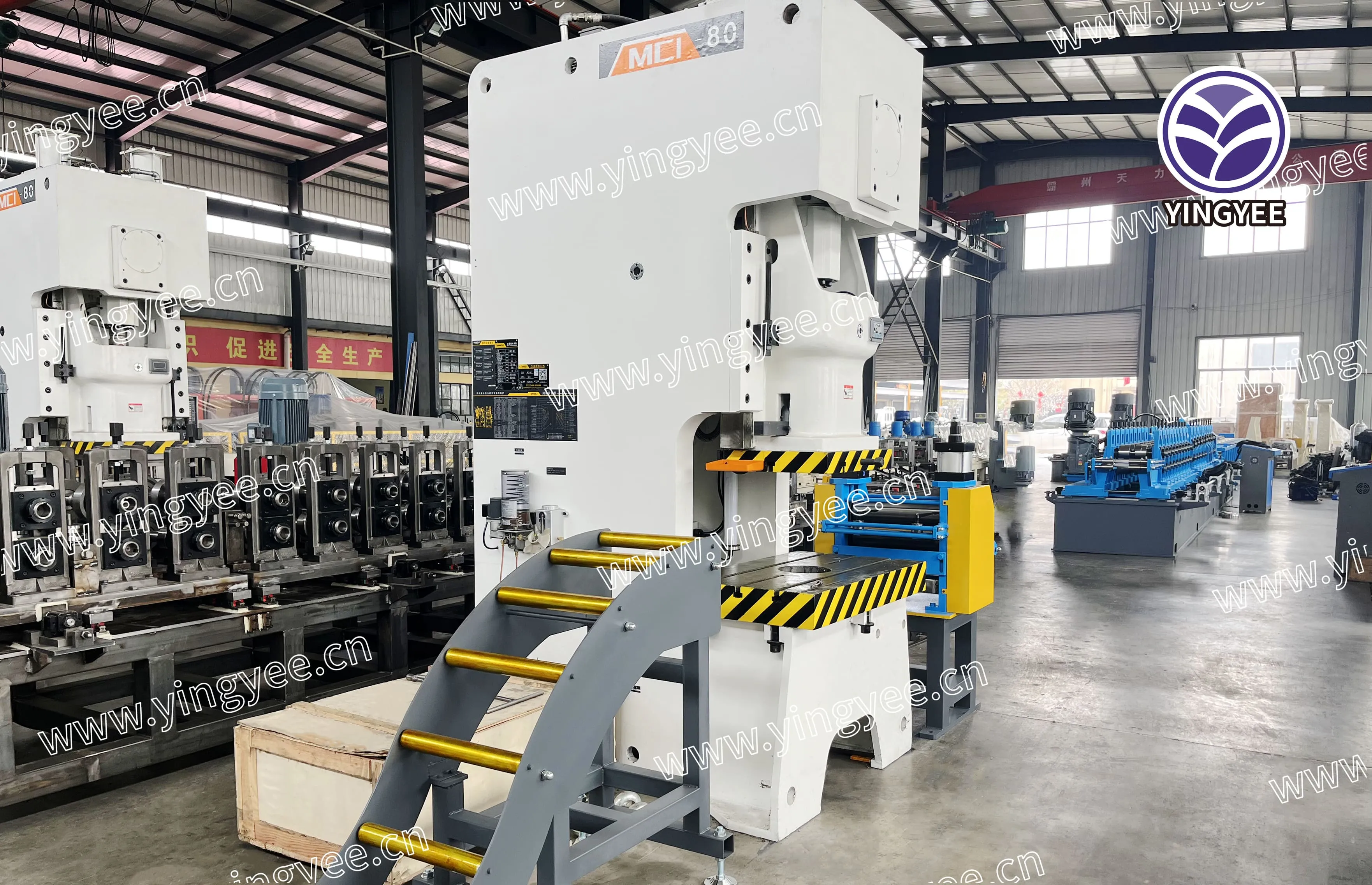
Roll Forming Machines A Key Component in Modern Manufacturing
Roll forming machines are vital equipment in various manufacturing industries, particularly in the production of metal components. These advanced machines utilize a continuous bending process to transform flat metal sheets into desired shapes and profiles, making them indispensable for creating products ranging from roofs and walls to frames and structural components.
The roll forming process begins with the feeding of a flat strip of metal, usually steel, aluminum, or copper, into a series of rollers. Each roller in the machine gradually shapes the metal by bending it into specific contours. This technique distinguishes roll forming from other metalworking methods such as stamping or bending, as it produces consistent profiles with superior dimensional accuracy and repeatability.
One of the primary advantages of roll forming machines is their efficiency. Once set up, these machines can produce long lengths of formed profiles at high speeds, significantly reducing production time. Additionally, they allow for minimal waste, as the continuous nature of the process often results in only scrap from the starting material's edges.

Roll forming is particularly prominent in the construction industry, where it is used to create various components like steel studs, tracks, and roofing panels. These products must meet stringent specifications for durability and strength, and roll forming's precise engineering ensures that these requirements are consistently met. Furthermore, because the process can accommodate a wide range of materials and thicknesses, roll forming machines are versatile tools that can adapt to diverse product lines.
Modern roll forming machines feature advanced technologies, including computer numerical control (CNC) systems and automation, that enhance their performance. These innovations enable quicker setup times, improved monitoring capabilities, and the ability to produce complex profiles with intricate details. As a result, manufacturers can respond rapidly to changing market demands and customize products according to specific client requirements.
In conclusion, roll forming machines represent a significant advancement in the field of manufacturing, offering a combination of efficiency, precision, and versatility. Their ability to produce high-quality metal components makes them essential for a myriad of applications, particularly in construction and industrial sectors. As technology continues to evolve, roll forming machines are expected to become even more sophisticated, further enhancing their role in modern production environments.